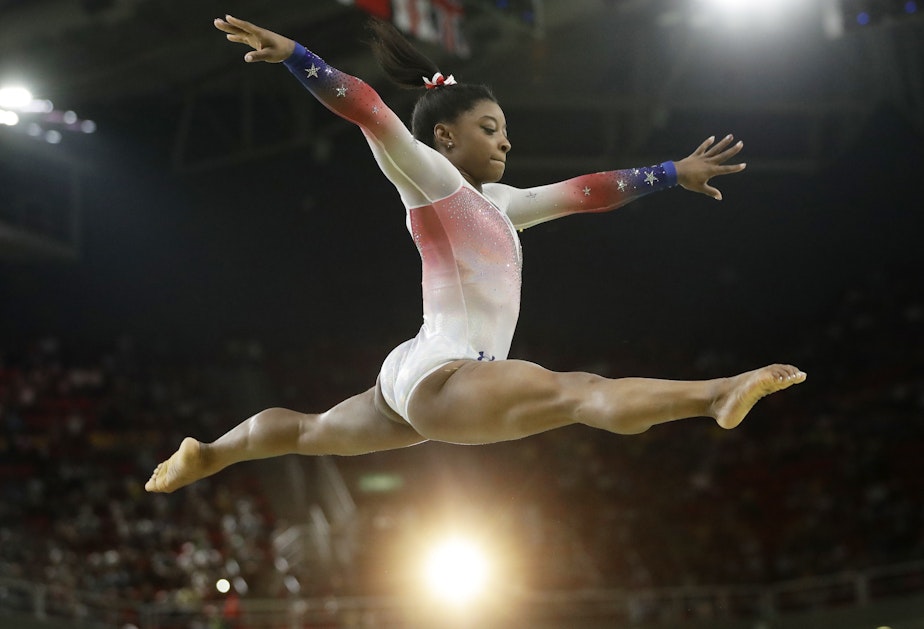Lindy West on Olympic coverage: 'Man's sex companion does something'

It's heartbreaking to Lindy West that young women work hard, become the best in the world at a difficult sport, and their moment of triumph turns into: "Man's sex companion does something, I guess."
West laughed as she said this. But it's not really a joke. In fact, she's incensed by the way female Olympians have been talked about during the Rio Olympics.
And she's not staying quiet about it anymore.
The headline that pushed her over the edge turned up on the Chicago Tribune twitter page last week. It read: "Wife of Bears' lineman wins a bronze medal today in Rio Olympics," when describing Corey Cogdell-Unrein's Olympic success.
It would be one thing, West said, if the majority of coverage of female Olympians was serious and rigorous and respectful.
"And then once in a while there was a gaffe where someone wrote an op-ed about someone's butt," she said, speaking to KUOW's The Record. "Instead we have gaffe after gaffe after gaffe, and at a certain point it stops being a gaffe and it starts to be a cultural problem."
After seeing a growing number of these gaffes, West wrote a guide for The Guardian outlining a few do's and don'ts for writing about women and sports.
It's not hard, West said: "Name of female athlete did sport today. Describe sport. Done. Sports writing accomplished."
West admits that one of the reasons people love sports is because of the human interest angle. People love hearing the back stories of athletes.
"You can do that without making them secondary to their husbands and their coaches. You can do that in a way that's thoughtful," she said.
West said most people responded to her tips the way she expected. They got it. But others called her out for being one-sided. What about the objectification of male Olympians, they asked?
And West acknowledges that there has been some coverage of male Olympians that makes her uncomfortable too, like female anchors touching male Olympians.
"There's some groping that went on and that's not irrelevant and that's not unworthy of critique," West said.
But it's also not the same, she said, because the objectification of women impedes their safety.
"Treating women as sexual objects and teaching men to think of women as things that you own makes women unsafe. It makes it dangerous to walk down the street," West said. "We're in danger from intimate partners, we're in danger from the government telling us what we can and can't do with our uteruses. Women die because we don't treat women as full human beings."
It's exhausting, West said, to see the same mistakes made over and over again. And it's exhausting to continue railing against it. But she hopes it will make a difference in the long run.
"We're the ones who have to keep bringing it up and create consequences: If you keep doing this the consequence is that you'll get yelled at on Twitter a bunch, which is surprisingly effective. People don't like getting yelled at on Twitter," she said.

